

One day, you show up to work and…
Your Agile team accidentally worked on a feature that isn’t due for the next release.
The accounting team reminds you that your project is breaking the bank.
Your team complains that one member has been out ‘sick’ for a week.
The project is 25% done… and the deadline is in three days!
Got your heart beating fast, didn’t it?
Those are just a few project management challenges a manager has to face every day!
That’s why this article will cover seven common challenges in project management. But don’t worry, we’ll also provide you with solutions and suggest project management software so you’ll never have to deal with those issues again!
(Click on the links below to jump to a specific section)
Let’s get problem-solving!
7 Key Project Management Challenges
Problems can pop up at every stage of the project life cycle.
And there are five stages.
That means the odds of facing a challenge go up 5x!
But don’t worry!
Let’s identify common project management challenges and solutions:
Challenge #1: No clear project goals
Ever wondered why you’re working on the project in the first place?
The chances are all the other project team members feel the same way!
When your team lacks any clear project goals, you feel like you’re lost at sea.

You don’t know what direction you should be paddling towards, nor do you know how close you are to land (project success). That’s why documenting your goals is one of the key components of a business plan.
Before you know it, you run out of time, resources, and hope, and all the while the frustrated tiger (the client) is hounding you to deliver!
Yikes.
As if that’s not scary enough, you’re also inviting many other project management challenges to dinner:
- Poor communication: No one knows what they’re supposed to do
- Scope creep: Working on other tasks not related to the goals
- Budget issues: Extra work leads to additional expenses
Want to prevent a scope creep from spooking your project team? Here’s a detailed guide on how to exorcise project scope creeps.
How to set meaningful project goals
The smartest way to set goals is well… to create SMART goals.
A SMART goal can be defined as:
- Specific: Answers the ‘who,’ ‘what,’ ‘where,’ ‘when,’ and ‘why’
- Measurable: Has criteria for measuring project progress
- Achievable: Can be reached by your project team
- Relevant: Aligns with the company’s missions
- Timely: Has a deadline
These goals are crystal clear and get your team out of an existential crisis.
Here’s an example:
Create version 1.0 of a kickass task management software by December to gain new customers.
During the project planning stage, you can create this goal using the Goals feature. This way, you can see what you need to work on.

But setting goals isn’t enough for a successful project.
You’ll also need to figure out how to achieve that goal.
You’ll need objectives here.
They’re measurable and specific statements that have a set target.
You can create Targets with units like numbers, currencies, tasks, or true/false.
Here are a few objectives or Targets relevant to the above Goal:

When your team works on meeting these objectives, ClickUp automatically calculates the goal progress percentage in real-time.
So when your team sees they’re closer to the goal, they’ll rush to finish more objectives.

Full steam ahead! 🚢
Another way to measure project progress is through Customizable Dashboards.
Just like the control panel of the ship has meters and gauges, a Dashboard has Widgets.
With these Widgets, you can:
- See how your Agile team is performing (Sprint Widgets)
- View the status of each task (Status Widgets)
- Chat with your team and know how they’re progressing (Custom Widgets)
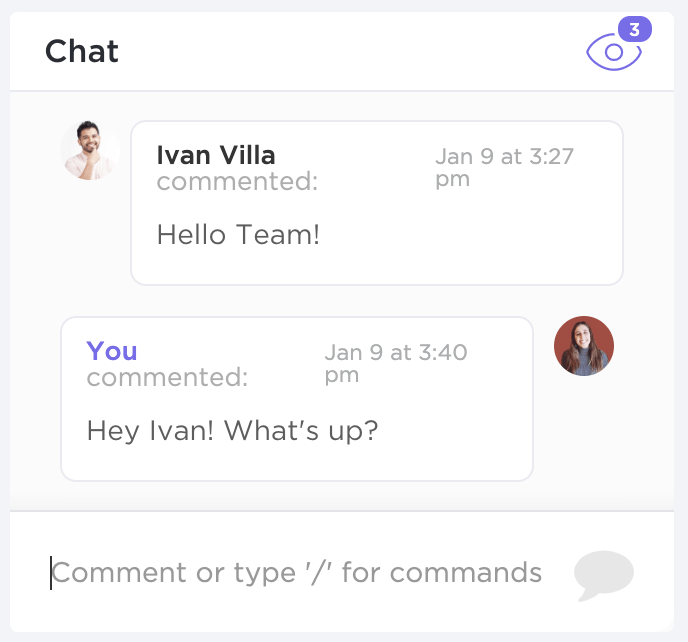
Challenge #2: Budgeting troubles
Let’s say you’re a sanitation commissioner like Homer here.
To keep every stakeholder happy, you implement some fantastic ideas like round-the-clock pickup, emergency clean-up services, and fancy new trucks. 🚚
However, these ideas aren’t cheap, and a month later…
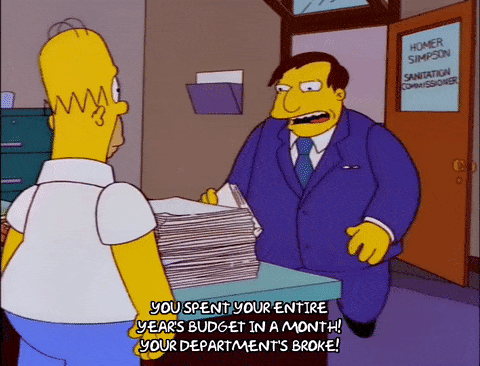
Not just Homer, around 50% of managers struggle with maintaining project costs.
But why?
They might not have estimated how much their ideas would have cost during the project planning phase. Or they didn’t check whether they’ve exceeded the budget until it’s too late.
And if projects continuously go over budget, your organization will be like the Titanic.
It’ll be hard to keep it afloat.
And your project team would evacuate when you fail to pay them enough! 🦺
How to keep projects under budget
To keep your expenses in check, you’ll have to plan well and make realistic assumptions.
A project management tool like ClickUp can certainly prevent spending too much $$$.

Here’s how:
Break down the project budget using Custom Fields to assign a fixed budget for every task, resource, etc.

Then, create another column that shows how much you spend on the task. Use column calculations to figure out the total costs during the project execution stage.
You can even make quick or complex calculations with formula fields. Use it to calculate a freelancer’s billable hours, cost of marketing campaigns, and more.
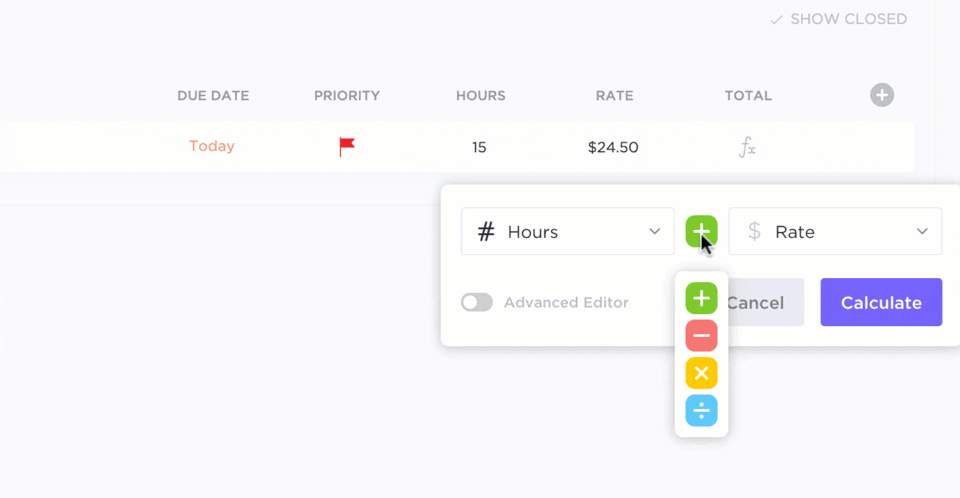
And if you’re looking for an easy way out, you can always apply super-quick Accounting Templates to your workspace.
Challenge #3: Ineffective communication
You wouldn’t skydive if your parachute had a 50-50 chance of failing, right?
Similarly, you wouldn’t want to manage projects without maintaining effective communication.
According to Project Management Institute (PMI), 56% of projects fail because the team members and the project leader weren’t on the same page.

This can lead to confusion as team members would have conflicting opinions about how they think they should do a task.
Additionally, if managers don’t share enough information with their employees, such as during a kickoff meeting, the team would have to frequently approach their desk for clarification.
This would be fine a year ago, but in the age of remote work, your team might have to spend an eternity waiting for further instructions.
How to maintain effective communication
The first step is to set up a knowledge base for your organization.
This will contain information about certain processes, tools, guidelines that your team should follow.
Use Docs to create a detailed Wiki that unlocks the secrets of the entire universe (or at least your organization)!
Similarly to Google Docs, you can collaborate with your remote team and create important process docs.
With Docs, you can:
- Add Docs to tasks for easy access
- Format your documents with rich-text editing
- Add lists, tables, images, videos, and more
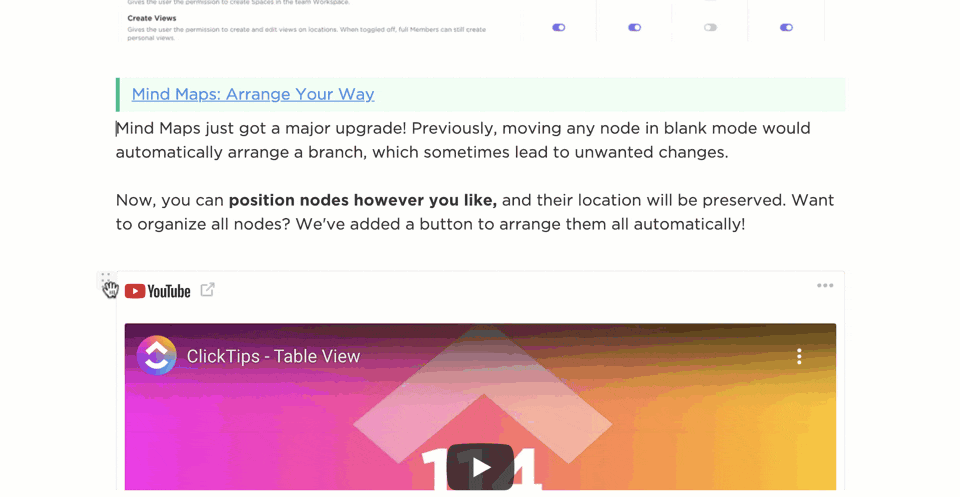
Docs aren’t enough, however.
Each task has a dedicated comment section, which you can use to discuss tasks and give clear feedback.
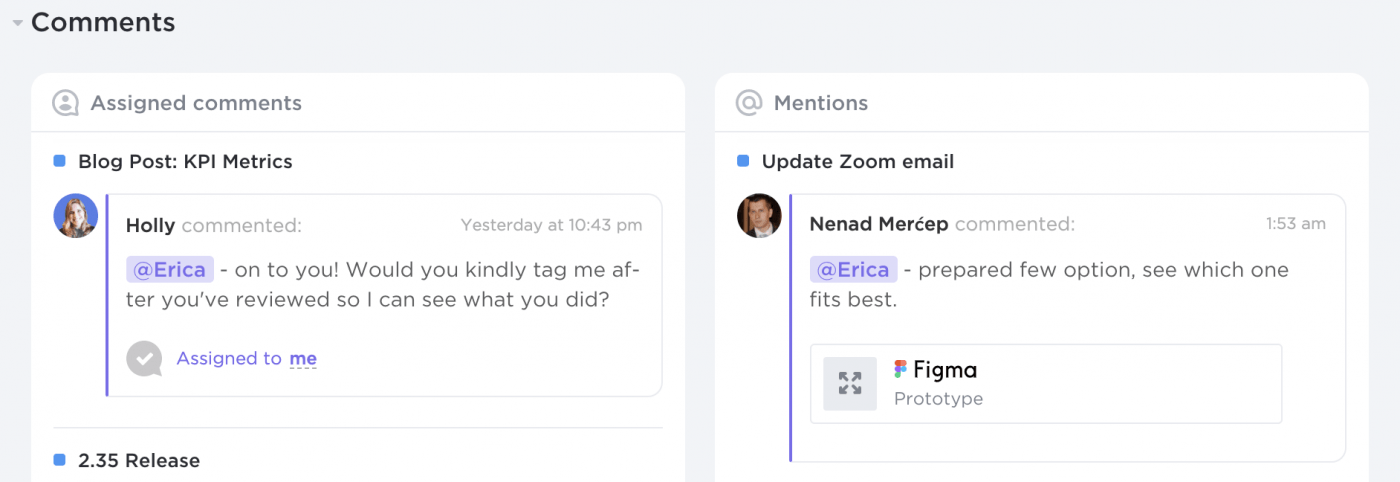
You can even add threaded comments to organize all your communication into small sections.
And if that doesn’t cut it, you can always hop on a quick Zoom call from a Task through the Zoom Integration.
We just hope Zoom filters don’t cause any purroblems 😼 .

Looking for paw-some ways to streamline team communication? Make the meowst of these 13 easy tips.
Challenge #4: Poor resource management
Before we talk about this common challenge, we need to define what a ‘resource’ really is.
A resource is something that can help you with managing projects.
It can refer to your team members, finances, skills, or even a pet who’s by your side as you focus on remote work.

Resource management involves planning, scheduling, and distributing them throughout the project life cycle.
However, if you don’t allocate your resources well, you might run into two problems:
You’ll waste a ton of resources (for example, your team’s productivity) and place unnecessary pressure on other teams to pick up the slack.
Or you’ll run out of resources quickly.
For example, you might overwork your project team by asking them to work on weekends to meet deadlines.
How to allocate resources effectively
There are two ways to deal with resource management: the easy and the hard way.
The hard way requires an Excel spreadsheet to keep track of who’s working on which task. You’ll have to spend hours manually creating and updating the sheet.
The last time we checked, workload management is about reducing your work, not adding onto it!
Fortunately, the easy way involves using project management software.
ClickUp lets you assign tasks and subtasks to multiple team members or entire Teams.
The assignees get instantly notified when they’re given a task so that they can work it right away.
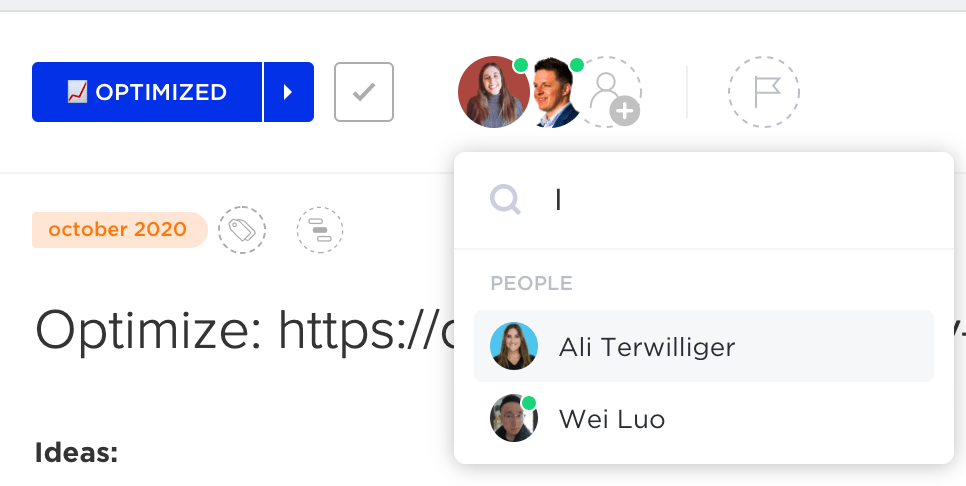
But how do you know whether the assignee can handle the task?
The Workload view lets you define each team member’s weekly capacity based on the number of hours, tasks, or story points they can get done.
You can then see who’s overburdened and reallocate tasks to those who have time on their hands.

This way, you’ll never have to say these dreaded words:

Here’s our crash course on resource management
Challenge #5: Workflow management
When your entire team and the project manager are so busy with tasks, they don’t have time to worry about the workflow and communication.
You gotta do what you gotta do, right?
Not really.
That’s exactly what causes most challenges of project management.
If everyone works independently, no one knows what other team members are doing or has any idea how the project is progressing.
Additionally, your processes might slow down to a grinding halt, and no one would know why.
All of this confusion would lead to some perplexing meetings.

How to implement workflow management
One of the most important project management activities is mapping out the workflow. Usually, this can be done while you’re creating the project plan.
It’ll highlight the entire project sequence that needs to be followed.
An interactive Gantt chart (like the one in our Gantt view) lets you create this timeline in a snap. Just add a task List to the view, and you can drag and drop them around to schedule tasks.
You can also draw a line between tasks to mark dependencies (tasks that can’t be done until a previous task has been completed).
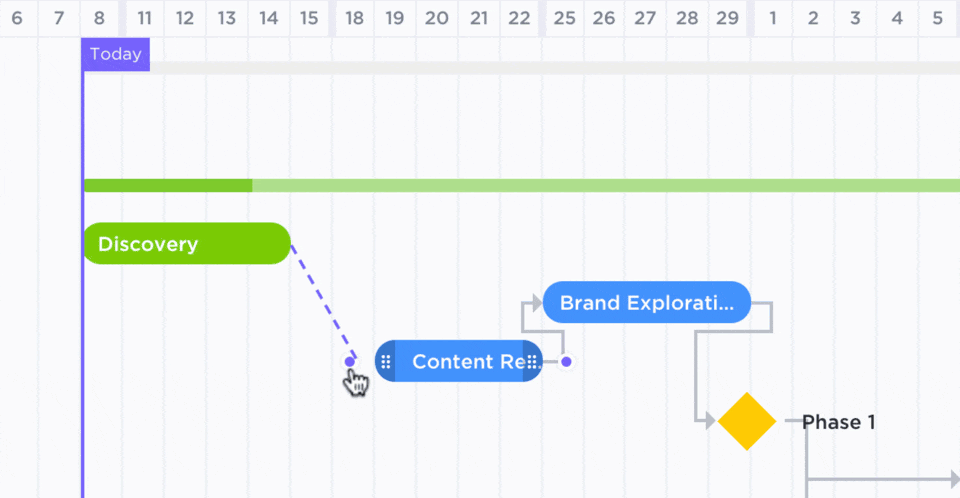
Phew. That’s it, right?
Nope. You’ll also have to streamline the process during the project execution phase.
This kan be done with Kanban view!
Here, the entire team would be able to see the status of every task, and they can move tasks around the board as they work on it.
To prevent the team from taking too much work in one go, you can add a Work In Progress Limit,
There’s another way to speed up the workflow, and it involves robots. 🤖
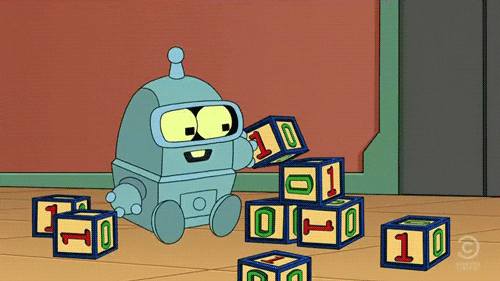
You can automate certain parts of your workflow with ClickUp.
Here’s what Automations can do:
- Add a Template when a task is created
- Set task Priority as ‘High’ when the deadline approaches
- When a due date arrives, then send an email
- Or create your own Automation based on your specific needs
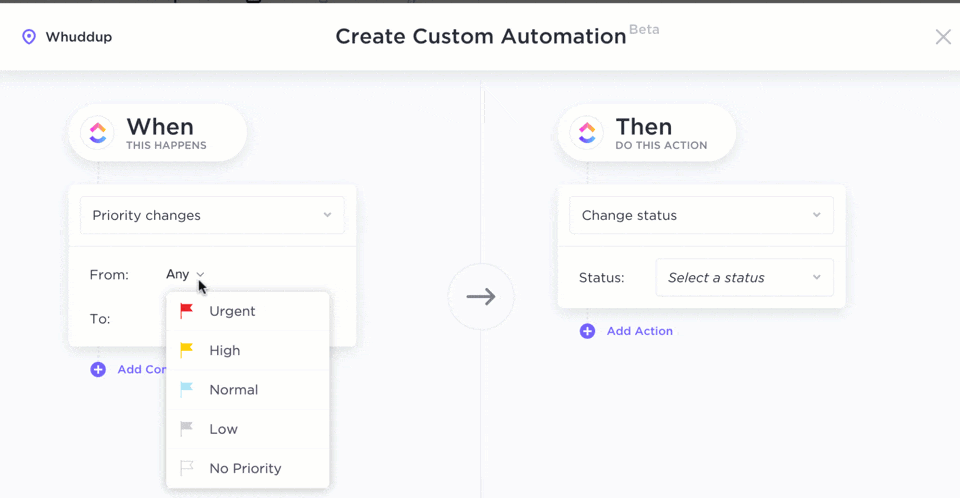
Check our guide to see how you can perfect the workflow management system.
Challenge #6: Unrealistic deadlines
Some managers always seem to impose a project deadline that the team can’t meet!
But why?
The project manager may be under pressure to meet the expectations of the stakeholder.
Or it could be these deadlines were planned aggressively in order to release a product before the competition does (like in the software industry).
Either way, this ‘need for speed’ is only going to slow the project team down.
How?
Constantly asking the team to deliver multiple projects with impossible time frames will lower the team’s morale and productivity. And their deliverables won’t look good, which will only make the stakeholder angrier.

How to deal with unrealistic deadlines
Start by asking your stakeholder or client why they need a project at a given time.
You might even find out they have a self-imposed deadline for no rational reason, so you both can figure a more achievable date.
And when you’re planning projects, you’ll need to figure out how quickly your team can work without getting burnt out.
How?
Your project team members can track how long it takes to complete a task with the Global Timer.
Based on the time tracked, you can even set Estimates for each task. This way, your team knows that you expect them to complete the task (and the entire project) in a reasonable time.

Using Agile project management techniques?
See how many tasks your team can speed through a sprint with the velocity Sprint Widget.

Want to know velocity charts can help you plan better project deadlines?
Check our quick velocity chart guide.
When you found the perfect project deadline date, check out the Calendar view to ensure that it doesn’t coincide with any other important events.

Challenge #7: Lack of accountability
Let’s suppose something goes horribly wrong during the project life cycle and the project is set back four weeks.
And then the blame game begins.
Soon, you might even hear your team members quoting a famous Shaggy song:

Instead of focussing on the project execution, your team might try to avoid any consequences and pin the project failure on other members.
But that doesn’t mean your team is being lazy or malicious.
It could be that the project leader didn’t clearly communicate who’s responsible for certain stages of a complex project.
How to build team accountability
Before you kick off the project, assign tasks to each team member. You’ll also have to ensure that they know what’s expected of them.
How?
Create checklists for each task, and assign each item of the list to a team member. This helps define who’s accountable for a particular part of the project.
Looking guidance? Take a look at: The Perfect 9-Project Management Checklist

Additionally, if you want to ensure that a particular project team member is actively working on your feedback (and not actively ignoring it 😏 ), you can hold them accountable by converting a comment into a task.
Once they’re done, they can resolve the comment and you get notified.
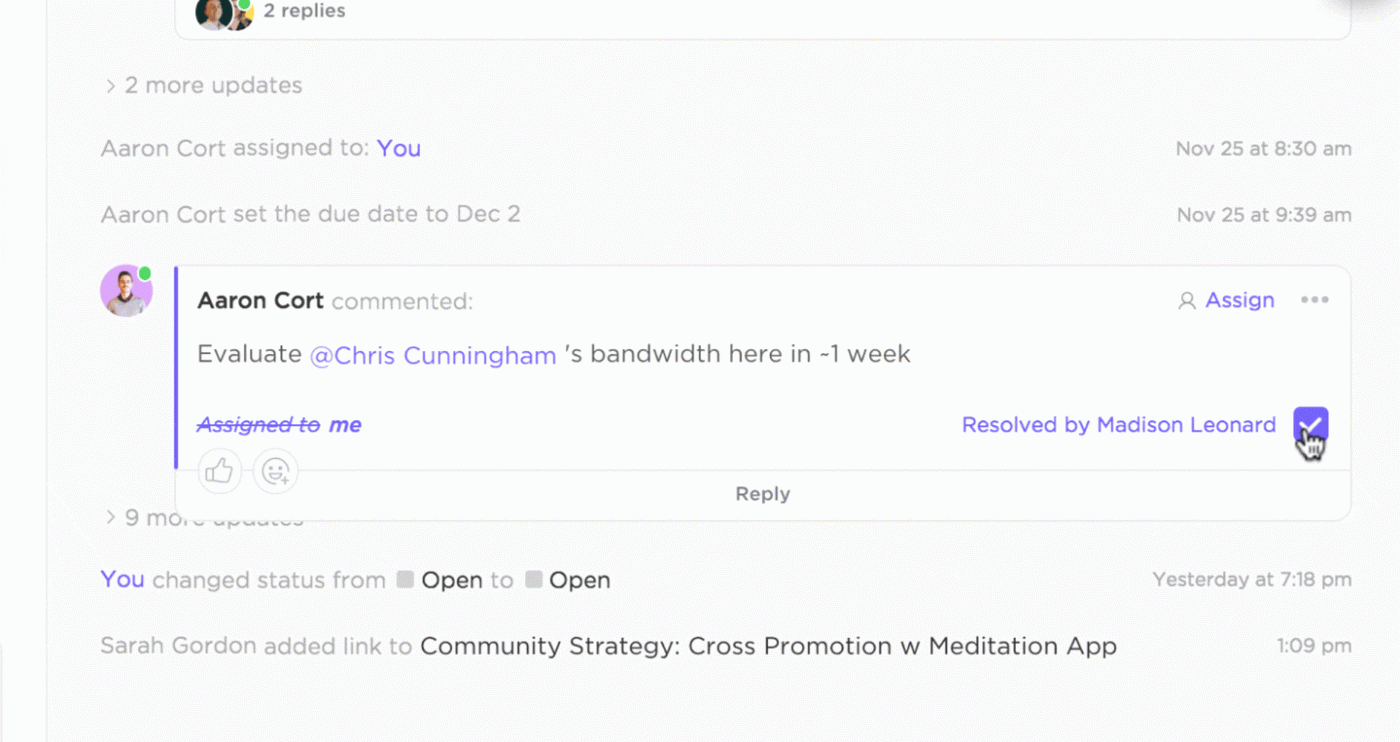
But what if you want your team to be responsible throughout the project?
You’ll need to do regular check-ins to see their progress and performance.
Sounds like too much work, right?
Fortunately, a project management software like ClickUp can save you from hours of boring status meetings.
Add some Table Widgets to your Dashboard, and you’ll instantly be able to see:
- Who’s completed how many tasks
- How many tasks they’ve worked on
- Who’s got loads of overdue tasks, and more
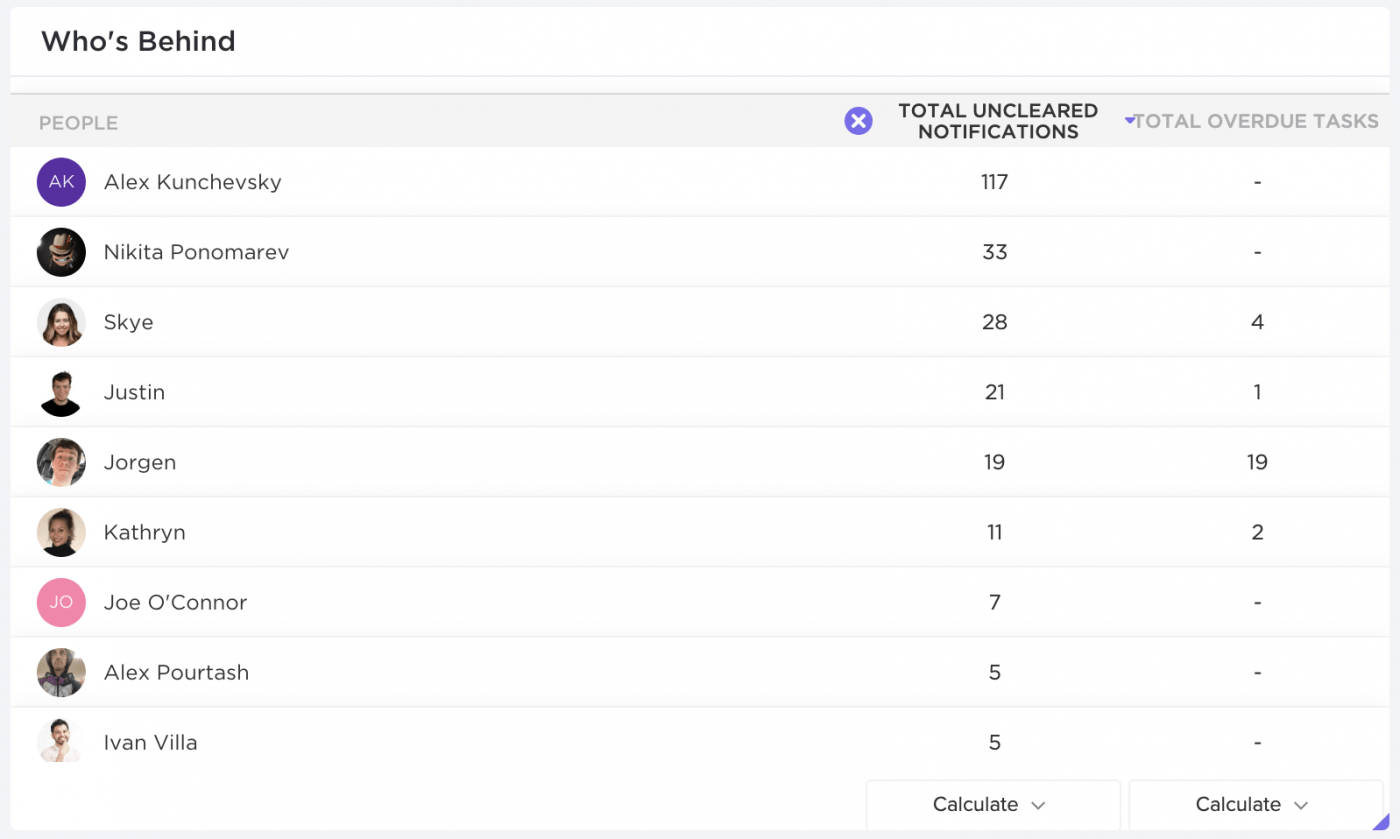
Challenge Accepted 😎
Managing projects is like playing video games.
It gets harder at every stage.
However, if you pick up a power-up like ClickUp, you’ll be able to speed-run through the project management process.
From Mind Maps to Flexible Project Views to Dashboards, you’ve got everything to increase the odds of project success.
So get ClickUp for free and blast through project management challenges today!



Questions? Comments? Visit our Help Center for support.